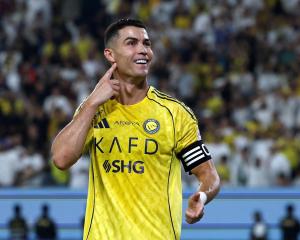Uehara will continue in the FootballSouth Premier League, where his Varsity side sits in second spot, six points behind unbeaten leader Caversham. Varsity would have been closer but an administrative error regarding player registration cost the students three points.
Varsity's situation, however, is in contrast to that of Southern United, which finished second bottom of the ASB Premiership after conceding 50 goals, or 3.5 per match.
Candidates for the Southern United job at first seem spare on the ground. There are two clear local possibilities in former Dunedin Technical coach Mike Fridge and Green Island coach Malcolm Fleming, not forgetting younger coaches such as Andrew Brook, Tony Martin and Andy Duncan, who has stayed in the loop with a keen commitment to Milk Cup tours.
The problem of filling Southern's vacancy was not helped by the departure of Canterbury coach Keith Braithwaite after five years at the helm. One imagines Mainland will have more recruiting resources than Southern.
When the dust settles and both areas have appointed coaches, a comparison of methods and results will be interesting.
A truly combined partnership between the two would clearly create much greater potential for a long-range plan, including a merging of personnel.
It has been suggested that a quality player, perhaps from the United Kingdom, with high-level coaching qualifications could be attracted to Otago to finish studies and also further his football career.
Or there is the tried and tested system of importing tradesmen who also have playing and coaching qualifications.
In recent years, Southland has brought in a series of good players and coaches, such as Barry Gardener and Craig Ferguson.
Recently, Southland lost Gardener and fellow coach Kenny Cresswell, and it is understood former Caversham and FootballSouth staff coach John McLelland is in the process of returning to a job in Invercargill.
A coaching format becoming popular in the UK is to appoint a club director of football, then build a coaching group for seniors and emerging players around him.
Recently, Waitakere appointed player-coach Brian Shelley, an Irishman, as the director of football, with responsibility for all on-field matters at the club.
While wary of coaching by committee, the trend is now widespread in Europe of appointing a director of coaching, and building a coaching and scouting structure around the main appointee.
Possibly Otago's best success in recent years was when the Dunedin Technical club reached two Chatham Cup finals, winning in 1999. Head coach Roger Brooks had assembled a talented group of coaches around him, and it worked well.
Caversham has had its share of good times, too, with an assortment of coaches working together. Steve Fleming, Andy Deeley, Richard Murray and Tim Horner combined with quality continuity.
Otago/Southern national league coaches in recent years have been Johan Koutsaal (2004-05), Terry Phelan (2005-09), Malcolm Fleming (2009-11), Richard Murray (20011-13) and Uehara (2013-14).
Today, with no games on the Caledonian Ground, the main focus will be at Ellis Park, where Caversham plays fifth-placed Roslyn-Wakari, and coach Horner will aim to preserve Caversham's unbeaten record this season.
Both Mosgiel and University are tied in second position, and coach Andrew Brook's side has home advantage at Memorial Park against the students in what could be the game of the round.
At Tahuna Park, Dunedin Technical is seven points adrift of the leader and needs to regain form against Green Island. The Island has had player losses, but will still muster decent resistance for the game.
Northern makes the long journey to Queenstown with high morale, after a narrow 3-2 loss to Technical that could have been a creditable draw had Cam Higgins converted an opportunity in the last minute.











